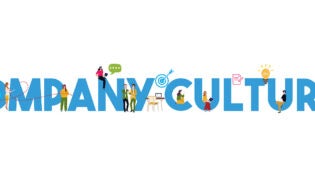How Digital Transformation is Changing Employee Expectations
By: Leslie Gilmour

As technology grows smarter and more critical in the workplace, many things are changing.
The concept of digital transformation involves the adoption of digital technologies and their implementation into every area of your business. It includes digitized project management, workflow automation, cloud technology, and online collaboration tools, AI-powered chatbots and AI in general, and so much more.
Often, we tend to be so amazed by all the benefits that new technologies bring us and forget that workforce involves people as well. For employees, digital transformation is changing the very nature of work. The new tech is reshaping how both managers and employees see their roles in their companies.
Here’s how it is changing employee expectations.
The current attitude is very positive
According to Workfront’s 2020 “State of the Work” survey, 91 percent of people questioned want even more technical and technological advancement in their field of work.
Currently, most folks say that one of the most significant benefits is the fact that they can work from any place with an internet connection, thanks to innovative tools that allow them to collaborate, communicate, and stay up to date on tasks and deadlines.
For younger employees, the ability to work from home and flexible work schedules are becoming crucial. That might be something your business should consider if you want to attract new talent.
The hiring process should change
When it comes to hiring new workers, many things should or will have to change.
Gen Z and Millenials as workers are looking for creative and innovative places to work. On top of that, flyers, newspaper ads, or even the traditional job portal sites are not quite the place where these individuals are looking for jobs.
In that aspect, social networking sites are becoming the place to reach new talent. During the last five years, Linkedin has proven to be a fruitful place for finding new employees. These days, many companies use Instagram to post engaging hiring ads that attract the new generational workforce towards internships and entry-level jobs.
Just like any other aspect of work, hiring is supposed to be more comfortable, faster, convenient, and beneficial in the digital age.
The way employees see themselves and their value is evolving
The same study quoted above has demonstrated that 89 percent of respondents believed that their role matters and 78 percent said that their job represents more than a paycheck. However, 65 percent of employees wished they were rewarded based on results instead of just deliverables.
People these days want a competitive benefits package, the right company culture, a diverse and inclusive workplace—many such factors are considered before joining an organization. High pay is still significant, but not as important as it was before.
Good implementation of new tech matters
Many leaders simply purchase new tools and then expect employee productivity to improve right away.
Employers also need to invest in employee training when investing in new software, resulting in frustration on both sides. New digital solutions always come with a learning curve, no matter how tech-savvy your employees are.
Before setting their own goals and expectations, leaders need to consider their employee’s needs and expectations and stop to think about how they should update procedures and processes.
Workers need to feel empowered
Though many workers have a positive attitude towards digital transformation, the entire concept is still new and strange. One of the biggest fears related to new technologies comes from the fact that people think that modern tech can replace them and leave them unemployed. Therefore, they are hesitant to embrace it.
The fundamental strategy for beating this fear is making your employees feel empowered.
Empowerment would provide staff with the opportunity to feel in control over their jobs. Employees should be awarded vital roles in enacting organizational changes, especially those concerned with digitalization. They should also have a say over which workplace aspects should adopt new technologies.
With enough training and development opportunities, optimal business outcomes are guaranteed.
The change in workplace culture
Digital transformation will bring about a tremendous shift in workplace culture and how employees interact and collaborate.
With more and more people working from home, organizations no longer have to limit themselves to hiring only people who live nearby – they can pick the best people for the job, regardless of where they live. In contrast, employees don’t have to waste time and energy commuting to work.
When it comes to productivity, new tech provides mechanisms that will bridge the gap resulting from the lack of direct contact between employees and employers. Big data analytics allows for analyzing employee performance metrics and identifying inefficiencies. Data-driven technologies can help both sides fix their mistakes and create a productive and high-performing workplace culture.
Fewer wasteful events
Finally, employees expect that the digital transformation will reduce workplace events that drain their focus, time, and energy. They wish their time and energy to be spent on strategically vital tasks instead of spending it on useless events.
Fast exchange of information means that the necessity of meeting is decreasing day by day. Workplaces should make sure that sessions are limited to only crucial conditions. Also, choose the meeting topics beforehand so that there is no straying from the point to be made.
Digitalization should also bring enhanced communication. Poor communication can hamper productivity and result in conflicts, toxicity, and delayed tasks. Simultaneously, correct communication practices would boost productivity, streamline performance, and increase the teams’ effectiveness.
Wastefulness can also come in the form of environmental wastes such as files, papers, and office supplies. That should be obsolete in this digital age. Using digitalization aid, you can reduce the amount of waste produced by an office location. Move the majority of your records to the cloud and ensure that the paper waste is recycled.
Conclusion
Overall, employees demonstrate a desire to limit wasteful tasks and focus more on strategic ones. Employers must learn that poorly executed tech solutions contribute to the lack of productivity.
At the same time, digital transformation impacts the way employees seek work and the workplace culture as a whole.
Companies that don’t recognize the importance of this new dynamic environment might be left behind.
2751 Views












